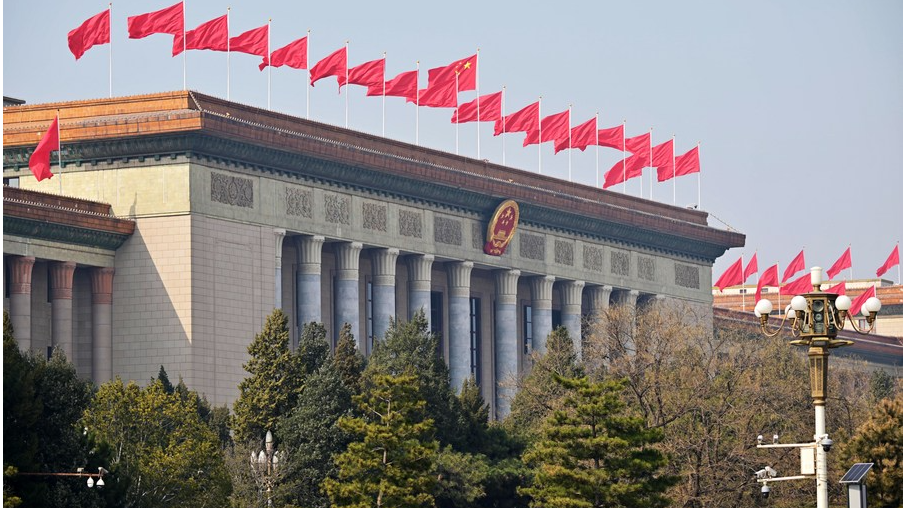
Political and business leaders called on Hong Kong to uphold its pioneering role in the nation’s development and deepening collaboration with Guangdong province on emerging technologies to capitalize on the abundant opportunities offered by the country’s new round of reform and opening-up.
On Thursday, the third plenary session of the 20th Communist Party of China (CPC) Central Committee was concluded in Beijing, and it adopted a resolution on further deepening the country’s reform and opening-up.
With economic structural reform as the focus, the resolution puts forward more than 300 important reform measures.
READ MORE: HKSAR plays vital role in deepening reform, advancing Chinese modernization
Starry Lee Wai-king, a member of the Standing Committee of the National People's Congress, said that Hong Kong has always been at the forefront as a trailblazer in the nation’s opening-up.
She said she believes that the special administrative region can still serve as a testing ground for the country in various fields, and contribute its unique strengths to developing Chinese-style modernization.
For the city to effectively fulfill the role, Hong Kong can leverage its advantages of smooth integration with international rules, accelerate the promotion of scientific and technological innovation, and further drive economic transformation, Lee said.
Lawmaker Jeffrey Lam Kin-fung, who represents the business sector, said that the plenary session made systematic arrangements for further comprehensive deepening of reforms, providing new momentum for Hong Kong's development.
He called on Hong Kong to leverage its unique advantages and seize the opportunities, including the transformation of scientific research achievements, enhancing new productive forces, and utilizing professional services to assist mainland cities and Hong Kong enterprises in expanding into emerging markets such as the Association of Southeast Asian Nations and the Middle East, thereby promoting sustained economic development.
Lawmaker Jesse Shang Hailong emphasized the Guangdong-Hong Kong-Macao Greater Bay Area’s role as a major talent hub, a forefront of opening-up, and a core engine driving national economic development.
He proposed that the Hong Kong government jointly promote the transformation of emerging technologies, optimize institutional mechanisms, and incentivize and support private enterprises to further unleash their potential in the market.
Shang added that the cooperation aims to gain a competitive edge together in emerging fields such as artificial intelligence, biotechnology, new energy, and new materials.
READ MORE: Leadership of Party guarantee for success of deep-water reforms that are now needed
Sunny Tan, chairman of the Hong Kong Productivity Council (HKPC), said the council will support enterprises seeking to leverage technology to build more internationally leading smart microfactories in Hong Kong and other cities in the GBA, promote new industrialization, and facilitate the transformation of traditional industries toward high-end, intelligent and green development.
He also said that the HKPC will focus on cultivating emerging and future industries, strengthening the pool of innovation and technology talents, bringing in more international innovation resources, and helping more Chinese mainland enterprises “go global”.
“It will work to develop Hong Kong as an international innovation and technology center and a hub for global supply chain management, serving as an important window for the country’s development of new productive forces,” Tan added.
Wu Xinyu and Brandon Lam contributed to the story.


